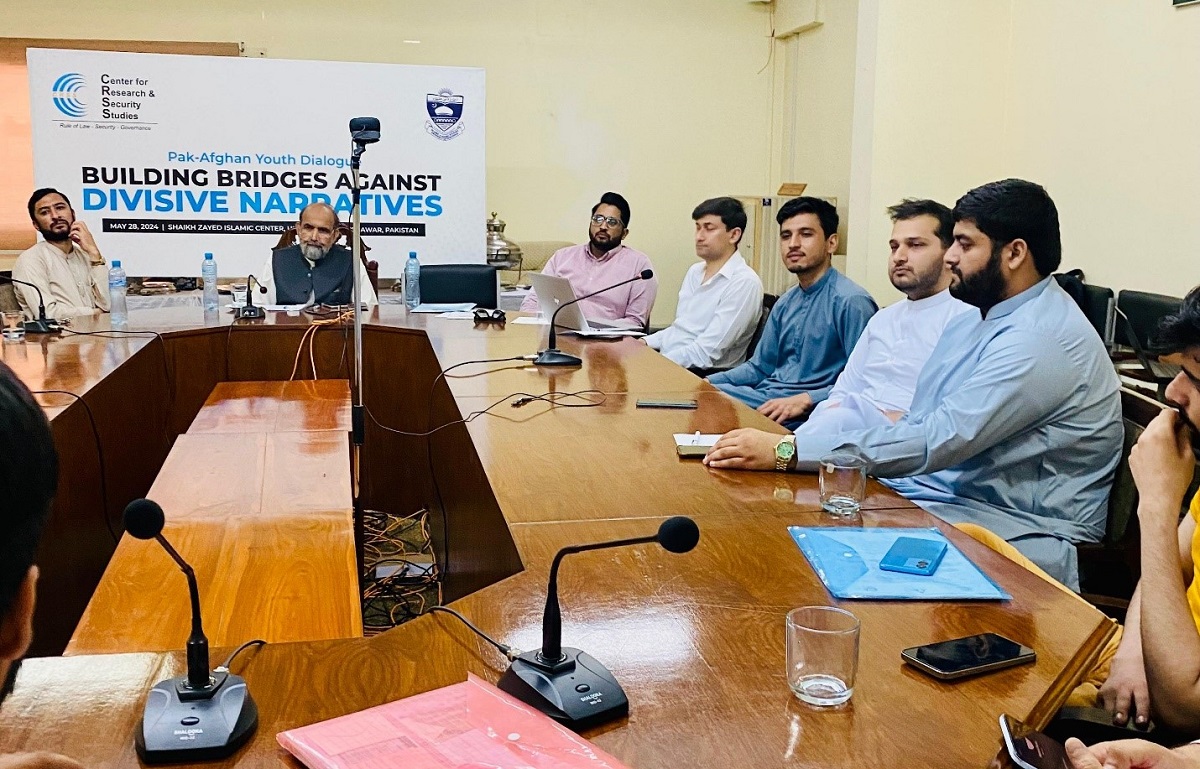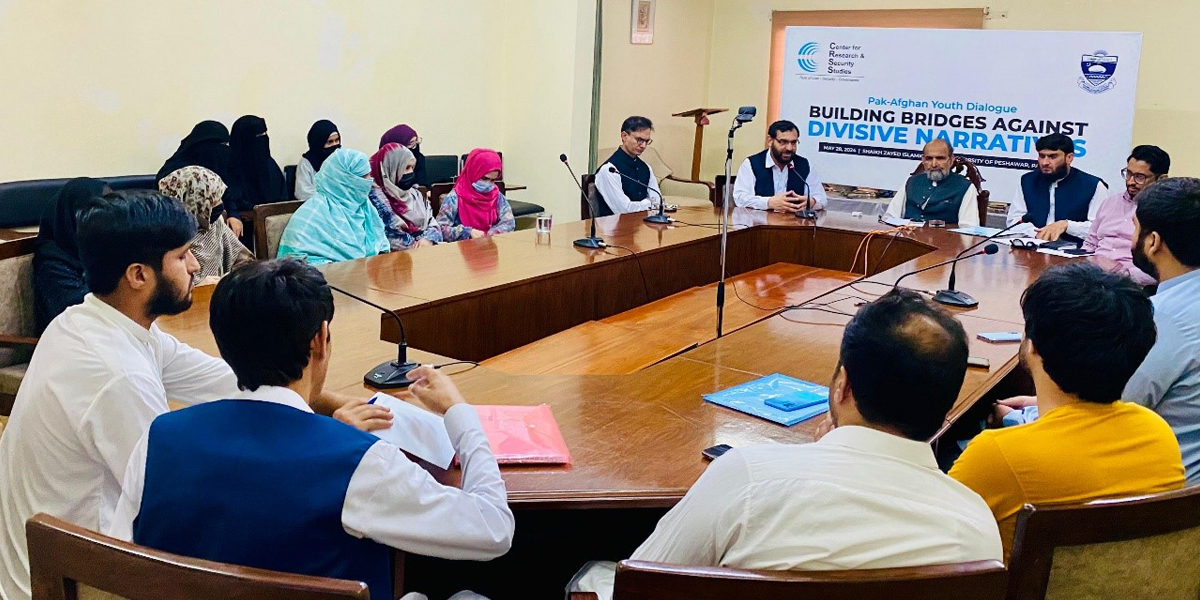Organized by: The Center for Research and Security Studies (CRSS) and University of Peshawar, Pakistan
Introduction
As part of the Beyond Boundaries project, CRSS organized a session with Afghan students studying at various universities across Khyber Pakhtunkhwa (KP), in collaboration with the Shaikh Zayed Islamic Center at the University of Peshawar (UoP). The goal was to engage in an open dialogue with Afghan youth to understand their perceptions of Pakistan and encourage them as ambassadors of peace, equipped with critical thinking skills to counter false narratives prevalent on social media.
Objective
Recognizing the pivotal role of youth in shaping the future of Pakistan and Afghanistan, the discussion aimed to address their unique challenges. These include limited economic opportunities, exposure to divisive media narratives, and a lack of constructive dialogue platforms. By addressing these issues, the session sought to empower Afghan youth to contribute positively to bilateral relations.
Event Discussion
Dr. Aamer Raza, a Fulbright scholar and senior academician at UoP, emphasized the importance of people-to-people exchanges in dispelling myths and building trust between the two nations. He highlighted the historical complexities affecting bilateral relations and stressed the need for local perspectives in policymaking. Dr. Raza noted that direct interaction between the citizens of Pakistan and Afghanistan could play a crucial role in mitigating misunderstandings and fostering a sense of shared history and future.

The session, attended by 22 Afghan students (11 male and 11 female), provided a platform for them to voice their opinions and experiences. They expressed gratitude to CRSS for facilitating candid discussions and acknowledged the support of the Pakistani government in their education. However, they also raised several issues affecting bilateral relations, such as the stigmatization of Afghan students and bureaucratic hurdles in visa and registration processes.

Recommendations
The following recommendations were presented by the Afghan students:
- Local Sensitivity: Raise awareness to promote acceptance of Afghan students within Pakistani communities, especially in light of incidents following cricket matches and other public events. They suggested community engagement programs to bridge cultural gaps and reduce xenophobia.
- Deconstructing Narratives: Encourage regular interactions between Pakistani and Afghan students to counter exaggerated negative narratives against Pakistan. This could include joint cultural events, educational exchanges, and social media campaigns showcasing positive stories.
- Illegal Migrants Issue: Advocate for a dignified and timely approach to the return of illegal migrants.
- Visa/POR Issues: Expedite the renewal of POR cards and facilitate visa processes to ensure timely admissions for Afghan students.
- Increase in Female Scholarships: Increase scholarships for Afghan female students to support their educational pursuits in Pakistan.
- Internship/Job Opportunities: Establish mechanisms for Afghan students to access apprenticeships and internships, enhancing their professional skills.
- Inclusion in skill-building Programs: Include Afghan students in Pakistan’s skill-building programs to equip them with certifications and skills.
- Microbanking Facilities: Allow Afghan POR holders to access microbanking services (Easypaisa, JazzCash) to facilitate digital marketing payments.
Conclusion
Dr. Qibla Ayaz, Former Chairperson of the Council of Islamic Ideology (CII), concluded the session by thanking the students for their recommendations and assuring them that these will be shared with relevant stakeholders, including government bodies and educational institutions. He praised CRSS for its efforts under the Beyond Boundaries initiative, which aims to bridge gaps between Pakistani and Afghan communities. The CRSS team expressed their continued support for the recommendations and thanked the participants and panelists for their valuable contributions. They emphasized the importance of ongoing dialogue and collaboration to achieve lasting peace and understanding between the two nations.

